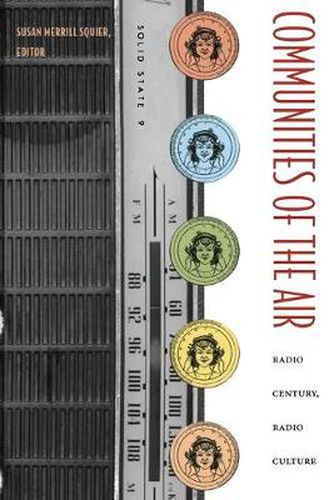Readings Newsletter
Become a Readings Member to make your shopping experience even easier.
Sign in or sign up for free!
You’re not far away from qualifying for FREE standard shipping within Australia
You’ve qualified for FREE standard shipping within Australia
The cart is loading…






This work analyzes radio as both a cultural and material production, it explores radio’s powerful role in shaping Anglo-American culture and society since the early 20th century. Scholars and radio writers, producers, and critics look at the many ways radio generates multiple communities over the air - from elite to popular, dominant to resistant, canonical to transgressive. The contributors approach radio not only in its own right, but also as a set of practices - both technological and social - illuminating broader issues such as race relations, gender politics, and the construction of regional and national identities. Drawing on the perspectives of literary and cultural studies, science studies and feminist theory, radio history, and the new field of radio studies, these essays consider the development of radio as technology: how it was modeled on the telephone, early conflicts between for-profit and public uses of radio, and amateur radio (HAMS), local programming, and low-power radio. Some pieces discuss how radio gives voice to different cultural groups, focusing on the BBC and poetry programming in the West Indies, black radio, the history of alternative radio since the 1970s, and science and contemporary arts programming. Others look at radio’s influence on gender through examinations of Queen Elizabeth’s wartime broadcasts, Gracie Allen’s comedy, and programming geared toward women. Together the contributors demonstrate how attention to the multitudinous ways radio is utilized and understood reveals the dynamic formation and transformation of communities within the larger society.
$9.00 standard shipping within Australia
FREE standard shipping within Australia for orders over $100.00
Express & International shipping calculated at checkout
This work analyzes radio as both a cultural and material production, it explores radio’s powerful role in shaping Anglo-American culture and society since the early 20th century. Scholars and radio writers, producers, and critics look at the many ways radio generates multiple communities over the air - from elite to popular, dominant to resistant, canonical to transgressive. The contributors approach radio not only in its own right, but also as a set of practices - both technological and social - illuminating broader issues such as race relations, gender politics, and the construction of regional and national identities. Drawing on the perspectives of literary and cultural studies, science studies and feminist theory, radio history, and the new field of radio studies, these essays consider the development of radio as technology: how it was modeled on the telephone, early conflicts between for-profit and public uses of radio, and amateur radio (HAMS), local programming, and low-power radio. Some pieces discuss how radio gives voice to different cultural groups, focusing on the BBC and poetry programming in the West Indies, black radio, the history of alternative radio since the 1970s, and science and contemporary arts programming. Others look at radio’s influence on gender through examinations of Queen Elizabeth’s wartime broadcasts, Gracie Allen’s comedy, and programming geared toward women. Together the contributors demonstrate how attention to the multitudinous ways radio is utilized and understood reveals the dynamic formation and transformation of communities within the larger society.